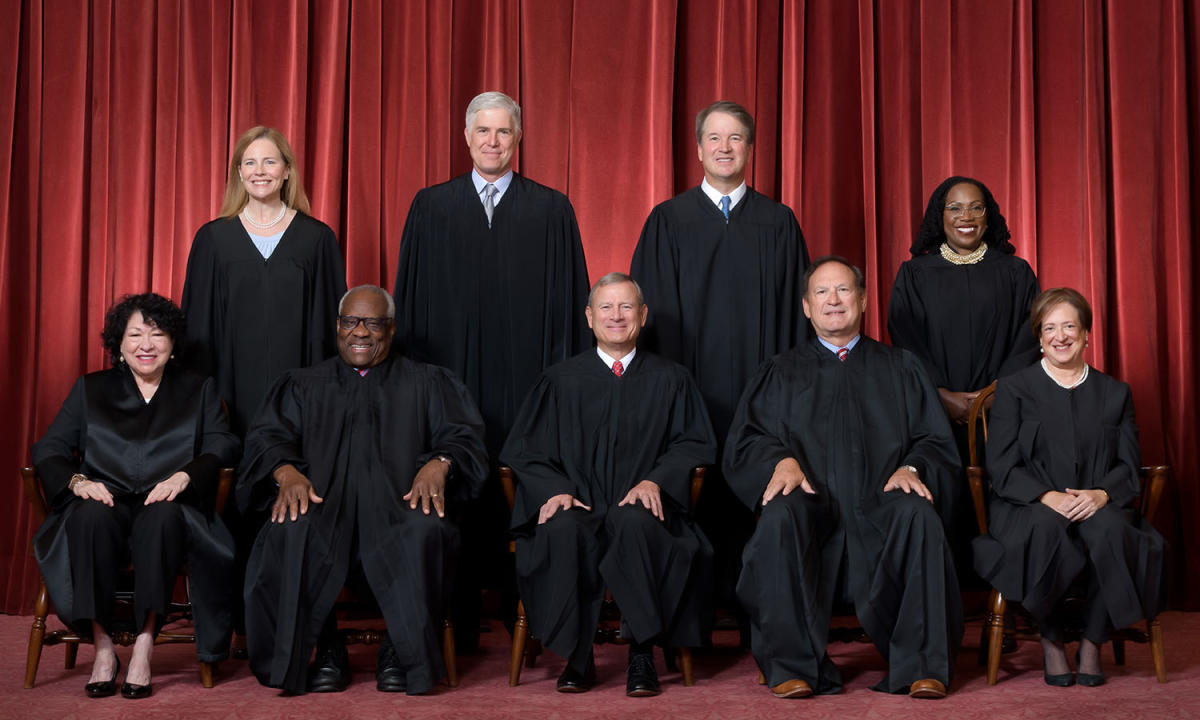On Friday, the US Supreme Court docket Agreed To cope with two high-profile social media instances which have big implications for on-line discourse, as reported Washington Put up. The conservative-dominated court docket will decide whether or not legal guidelines handed by Texas and Florida violate First Modification rights by requiring social platforms to host content material they might block.
Tech business teams, together with Meta, X (previously Twitter) and Google, say the legal guidelines are unconstitutional and violate the First Modification rights of personal corporations. “Telling personal websites that they have to deal with hate extremists equally shouldn’t be solely unwise, it’s unconstitutional, and we sit up for proving that in court docket,” mentioned Matt Schreurs of the Laptop and Communications Trade Affiliation (CCIA), one of many main organizations in Laptop and communications business. Commerce associations are difficult this laws Washington Put up. The CCIA described the matter as “encouraging.”
Teams representing tech corporations competing for the legal guidelines say the platforms can be at authorized danger for eradicating violent or hateful content material, propaganda from hostile governments, and spam. Nonetheless, leaving content material on-line could possibly be unhealthy for his or her backside line as a result of it dangers boycotting advertisers and customers.
Supporters of the Republican-sponsored state legal guidelines declare that social media corporations are biased in opposition to conservatives and illegally censor their opinions. “These large enterprise entities can’t proceed to function unchecked as they silence the voices of tens of millions of People,” mentioned Texas Legal professional Common Ken Paxton (R), who lately survived an impeachment trial. He was accused of abusing his positionBribery and corruption. The appellate courts (all of which embrace Republican-appointed judges) have issued conflicting rulings on the legal guidelines.
The US Supreme Court docket voted 4-4 in 2022 to droop the Texas legislation as authorized wrangling continues. Justices John Roberts, Stephen Breyer, Sonia Sotomayor, Brett Kavanaugh, and Amy Coney Barrett voted to dam the legislation from taking impact. In the meantime, Samuel Alito, Clarence Thomas, Elena Kagan, and Neil Gorsuch dissented from the non permanent suspension. Alito (joined by Thomas and Gorsuch) mentioned he had not but selected the constitutionality of the legislation however was going to let it stand within the meantime. Kagan didn’t signal Alito’s dissenting assertion or present separate causes.
The Biden administration is breaking the principles. Public Defender Elizabeth B. Prelogar to the justices: “The method of sorting and organizing the content material that customers see is inherently expressive, even when the discourse collected is sort of fully offered by customers.” “Notably as a result of the one merchandise of lined platforms are shows of expressive content material, the federal government requirement that they show totally different content material—for instance, by together with content material they want to exclude or organizing the content material differently—clearly invokes the First Modification.”
(tags for translation) Information
